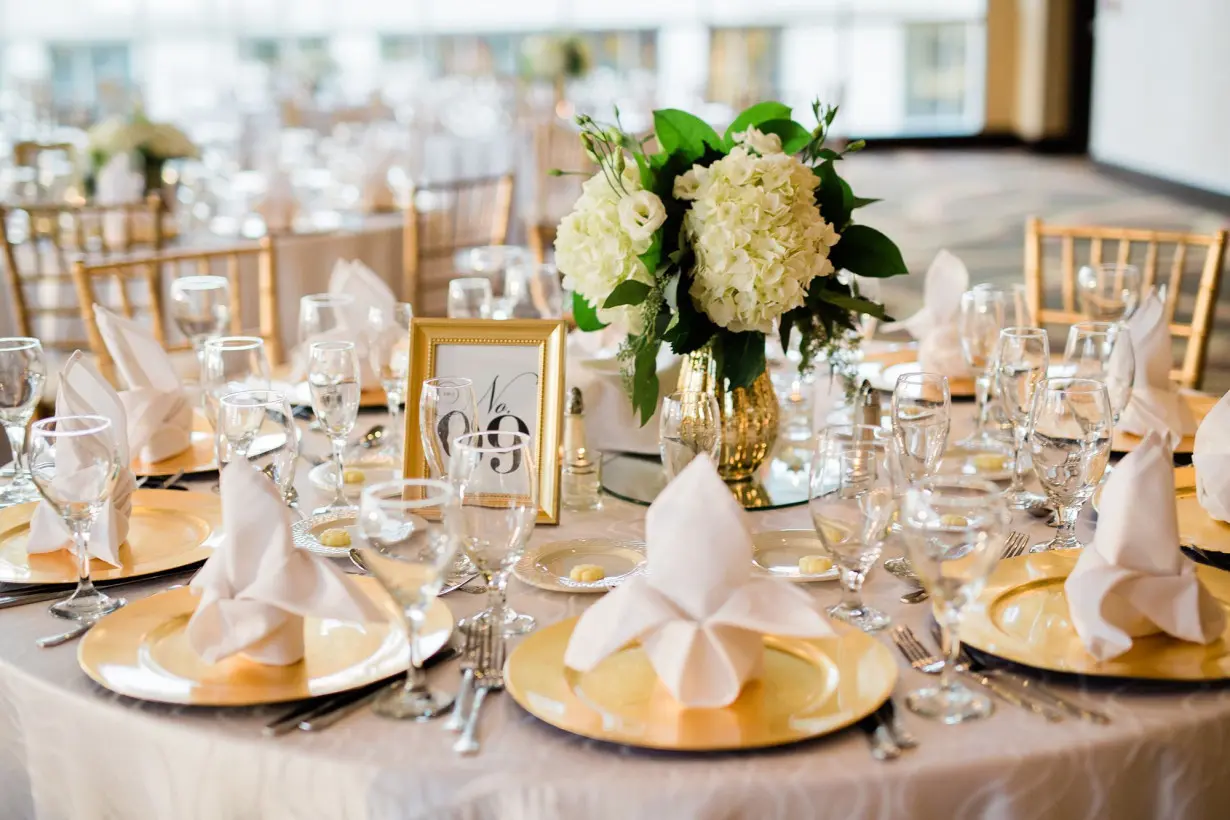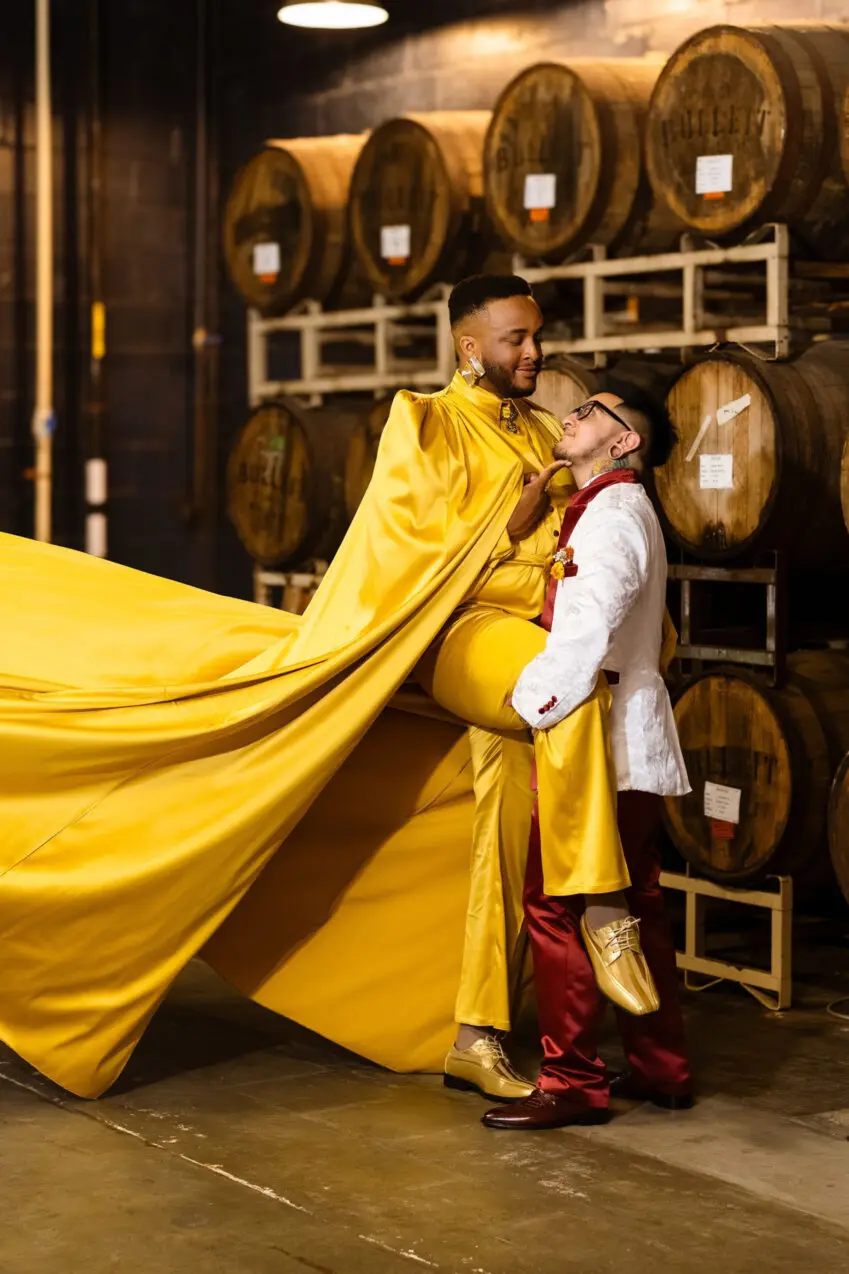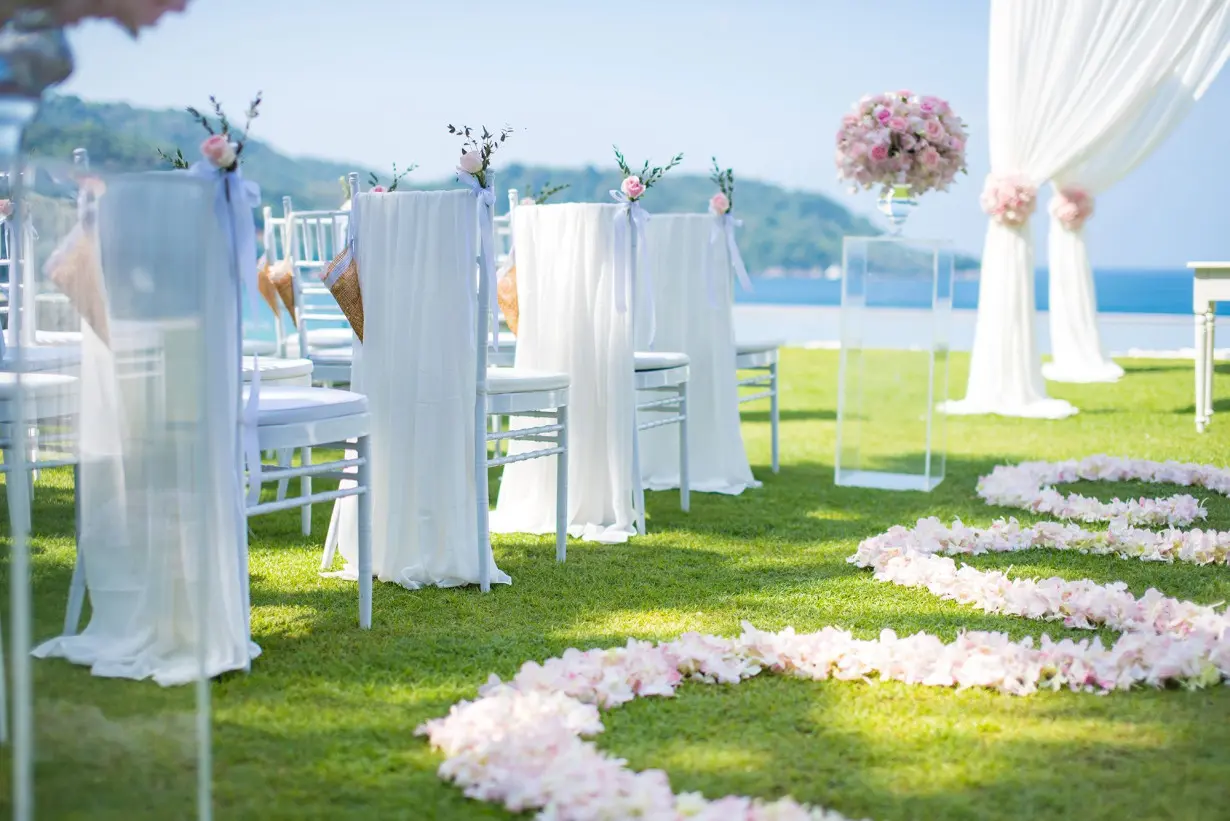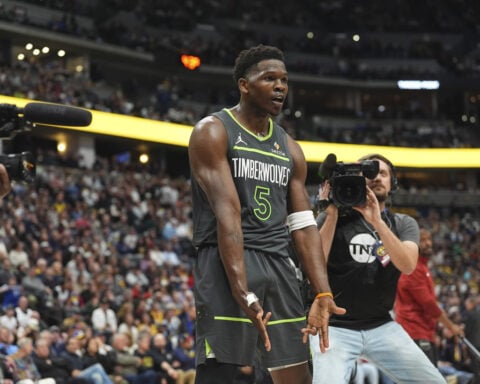(CNN) — Weddings used to be simple affairs.
Take the wedding of President Rutherford B. Hayes, who married Lucy Webb the day before New Year’s Eve in 1852, in a ceremony hosted at Webb’s family home in Cincinnati.
The wedding was a plain one: roughly 30 guests, no fancy venue, and the bride wore a pared down off-white satin dress, a far cry from the snow-white ballroom gowns of today. Both Webb and Hayes wore what professor of US women’s and gender history Katherine Jellison called “fancier version of everyday clothing.”

“Most people wore what you might call their Sunday best to get married,” Jellison, who teaches at Ohio University, told me. “Women didn’t wear a special white dress that they were never going to wear again.”
But that was the 19th century. As an unwed woman and frequent wedding guest in 2024, I am maybe too attuned to the ways weddings have become increasingly extravagant.
Everyone around me is getting married, and while I’m happy they have all found everlasting happiness with their one and onlys, as a guest I can’t help but balk. And not necessarily at the price tag for the wedding, but the price tag for the guests. I’ve driven hundreds of miles to attend various nuptials; crashed at friend’s homes to save money on hotels; and, reluctantly, shelled out hundreds on plane tickets and other amenities to attend the big day.
Next year, I’ll be a bridesmaid at a wedding in Greece — an affair so bone-chillingly expensive that I’ll likely resort to eating rice and lentils in the weeks preceding. I am a peasant, and the weddings are my feudal lord.

Reports about this surge in guest expenses are abundant. On Reddit, one user noted that being a bridesmaid in her best friend’s wedding in a Scandinavian town, where the friend’s family is from, is going to run her $8,000. (In her post, she wavers over declining the wedding invite, because attending is “too damn expensive.”)
One friend told me she spent $1,400 just on flights to the five weddings she attended this year — equal to a month’s rent. And some guests are being denied plus-ones, making attending the wedding less of a joy and more of a dutiful chore. (None of the weddings I’ve been to in my life have allotted a plus-one for me. Yes, I’m bitter.)
This is to say nothing of bachelor and bachelorette trips to Cancún, springing for bridesmaids dresses in niche colors you’ll never wear again or any of the other extra spending required to participate in a wedding these days — all in the name of the couple’s “special day.”
Couples are feeling the strain, too. Some have charged their guests for tickets to their wedding. Others have set up crowdsourced funds instead of having a registry to help finance the event. Some are even choosing to host weddings abroad, which can be cheaper than having the event stateside (but, of course, astronomically more expensive for me, the guest).
Weddings are supposed to be celebrations of commitment and love with the people closest to you. But in pursuit of that picture perfect, specific-to-you extravaganza, guests are often saddled with more and more costs to make the big day happen. The couple gets the day of their dreams, and the guests leave with lighter wallets and a personalized koozie they’ll toss before they even board their flight home.
Lavish weddings weren’t always the norm
The Western idea of an extravagant, all-white affair is a relatively recent one, spurred by the booming economy after WWII. As middle and working class people had more disposable income, Jellison said, they could spend more on weddings.
Now, the wedding industry has convinced us that this type of grandiose occasion is the only way to wed. The average cost of US weddings last year was $35,000, a $5,000 jump from the year before.
Even in times of high inflation, like now, while some may try to cut back, expensive weddings prevail. Back in the 1990s, during a recession, Jellison was doing research for her book “It’s Our Day: America’s Love Affair with the White Wedding.” She stumbled across some advice from people in the wedding industry, who claimed that even in times of recession, professionally produced white weddings would stay put. People would just find ways to save money.
“I remember one of the examples was, ‘Yeah, go ahead and have a tiered cake, just make the bottom tiers real cake,’” Jellison recalled. “Then the other ones could just be frosted Styrofoam.”
In other words, appearances reign above all else. Even if we can’t afford it, some part of us wants the ornate affair, if only for our own self-image.
“If part of the rationale for a lavish wedding is to assert one’s place in the pecking order, then presenting an image of abundance and elegance, even if a person can’t really afford it, becomes the ‘thing to do,’” Jellison said. “It is about appearance trumping reality.”
Even in 2024, that idea of optics over reality seems to hold true. To me, too much of wedding culture seems like frosted Styrofoam. Sure, you’re invited to the wedding, but you can’t bring your partner, so good luck on the dance floor. Sure, we want you to come to our ceremony, but it’s a destination and you’ll have to sell your car to pay for the flight and hotel. Oh, you’re in the wedding party? Hope you refinanced this year!
Much of the pressure surrounding modern American wedding culture seems to stem from social media. For couples planning their wedding, there’s an onslaught of content about all the ways to make the affair the most unique, the most memorable, and the most special day of everyone’s lives. (In a list of 2025 trends from wedding planning website The Knot, researchers forecast an uptick in weekend-long activities, like pickleball tournaments, and hyper-specific guest dress codes. So long, “black tie;” hello, “gold gilded white-tie gala,” whatever that means.)
The problem, to me, is that all of this extravagance seems to mean I’m expected to pay more, too. As I pondered this dilemma, I turned to my most trusted source of all news and information: My group chat.
“We have lost the plot,” said one (married) friend. “Weddings used to be bigger and cheaper because we weren’t doing bathroom baskets in Prague, y’know.”
Reader, I did know.
“The amount of money I have spent on weddings this year alone,” bemoaned another friend, also married. (She did the math: the final number was north of $4,000.)
It’s not just me, they assured me. Still, the data seemingly points to the opposite. For couples having a wedding, the “guest experience” is the No. 1 priority, according to The Knot.
I emailed them to press further. What does the “guest experience” actually consist of? What are couples prioritizing?
“Some examples of how couples are delighting guests include added features such as photo booths (61%) and games (20%), along with having a signature cocktail (45%) — espresso martinis stand out as a top choice — and local food (24%),” said spokesperson Anni Jones, referencing couples surveyed. “We’ve also seen couples taking song requests from their guests in advance of the wedding.”
But when I think back to the weddings I’ve been to, I don’t remember the photo booths, how good the cocktails were, or whether the playlist hit exactly the way I wanted. I do remember the couple — my friends — looking all doe-eyed and in-love, holding hands before we all drunkenly joined the Electric Slide just before midnight.
“The wedding industry, of course, has a vested interest in selling a certain image,” Jellison said. “I think consumer culture has outstripped all other cultural experiences. We are a consumer culture.”
Now, both couples and guests are in a bind
Reemo Styles, 31, and Nova Styles, 31, got married last June in Manhattan. But the invite list wasn’t like others; the couple sold tickets to their wedding — which involved a bus tour around New York — for $333 each. They didn’t charge because they needed help paying for the wedding, which they said cost north of $70,000, but to help them narrow down the guest list, they said.
“We sold tickets because we wanted to have less stress, and have people choose us instead of us choosing people,” Nova said. “We want to… make it where it’s more about the celebration of the couple and not the celebration of the guests.”
Did they consider paring down the event, making it more accommodating for a larger group?
“Absolutely not,” Reemo said. “Because that would be doing things for others.”
It’s true that weddings can often be an amalgamation of what everybody else wants –– parents, planners, influencers –– rather than the couple’s actual interests. But even in the last few decades, weddings really did seem to be focused on celebrating a lifelong commitment with those closest to you, regardless of the bells and whistles.
In recent years, that’s beginning to change. Couples are often cohabiting before marriage, Jellison explained. Or, maybe this isn’t their first marriage, or they’re marrying someone of the same sex. Previous ideas about what a wedding is, and its purpose, are evolving. Even the honeymoon has changed; in the 19th century, it was a time for the couple to visit family and friends and introduce yourselves as a couple, Jellison said. In the 20th century, it became a romantic getaway.
It’s a paradoxical experience. Weddings are the rare time in life where everyone you care about will likely come together — friends, family and loved ones. But Western culture is becoming increasingly individualistic. It’s not necessarily in our nature anymore to honor the people who have supported us. And many people saying “I do” are largely funding the ceremony themselves, making it less of a family affair. There’s a shift — though subtle — towards what the guests can do to make the couple’s dreams come true.
In my Ethiopian family, many of these American wedding traditions are foreign. There are no banned plus-ones, no pricey bachelorette trips. Weddings are a community celebration; the more people, the merrier. Food is buffet style, and somehow there’s always enough. There are compromises: The venue might not be the chicest, and the flowers may have that brittle scratch of polyester. But the priorities are different.
Taylor Alxndr, a drag queen based in Atlanta, married their partner in September. Armed with a budget of just $12,000, the couple covered the costs of the ceremony themselves.
After a suggestion from a friend, they set up a fund to help mitigate some of the wedding and honeymoon costs. The amount raised wasn’t even one-fourth of the budget, Alxndr said, but “the extra support definitely helped and was appreciated.”
“We definitely worked on a very small budget, knowing that this wouldn’t be the most grandiose ceremony,” they said, “but wanting to make it feel like an expression of our love and those who we call family.”
In an American context, there are seemingly two ends of the spectrum: Couples who think the wedding is only about them, and those who make it about everyone else. Of course, sometimes guest expenses, like flights and lodging, can be out of the couple’s hands; and weddings in general aren’t cheap either. It’s a see-saw: the couple wants what they want, and the guests are left to play their part.
In the end, whether it’s the couple or the guests, someone has to pick up the check.
The-CNN-Wire
™ & © 2024 Cable News Network, Inc., a Warner Bros. Discovery Company. All rights reserved.

 Trump has begun another trade war. Here's a timeline of how we got here
Trump has begun another trade war. Here's a timeline of how we got here
 Canada's leader laments lost friendship with US in town that sheltered stranded Americans after 9/11
Canada's leader laments lost friendship with US in town that sheltered stranded Americans after 9/11
 Chinese EV giant BYD's fourth-quarter profit leaps 73%
Chinese EV giant BYD's fourth-quarter profit leaps 73%
 You're an American in another land? Prepare to talk about the why and how of Trump 2.0
You're an American in another land? Prepare to talk about the why and how of Trump 2.0
 Chalk talk: Star power, top teams and No. 5 seeds headline the women's March Madness Sweet 16
Chalk talk: Star power, top teams and No. 5 seeds headline the women's March Madness Sweet 16
 Purdue returns to Sweet 16 with 76-62 win over McNeese in March Madness
Purdue returns to Sweet 16 with 76-62 win over McNeese in March Madness








